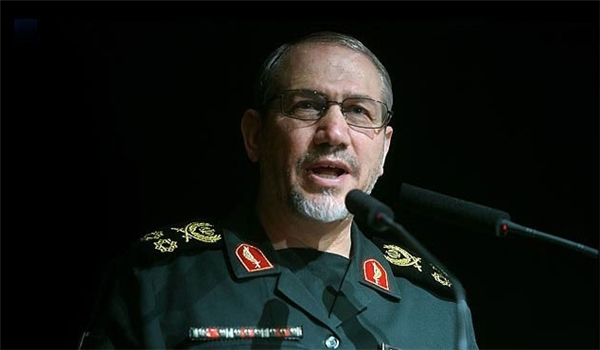Leader's Top Military Aide: Trump's Unilateralism Doomed to Failure, US No Longer Superpower in 2035

RNA - "The US exit from the JCPOA and re-imposing economic sanctions against Iran are doomed to failure," General Rahim Safavi said on Monday, addressing a group of the IRGC commanders and officers in Isfahan in Central Iran.
"The US will not be a global superpower any longer by 2035," he added.
In relevant remarks on Monday, Iran's Deputy Permanent Representative to the United Nations Eshagh Al Habib rapped the US unilateralism as the core obstacle on the way to nuclear disarmament in the world.
The Iranian diplomat made the remarks on Monday addressing the debate session of UN General Assembly’s First Committee (Disarmament and International Security) where delegates from all over the world voiced their concern over the possible breakdown of the Iran nuclear deal and discussed ways to get collective disarmament efforts back on track.
According to Fars News Agancy, Al Habib said that systematic attempts have been made to undermine the value, significance and efficacy of multilateralism, to demonize multilateral institutions and agreements and to disregard global rules and norms.
"One clear example is the illegal United States withdrawal from the Joint Comprehensive Plan of Action, which is the outcome of long and intensive multilateral diplomatic efforts to resolve a manufactured crisis and build trust," he said.
"Violating its commitments under the agreement as well as Security Council resolution 2231 (2015), the United States brazenly forces others to either violate the resolution or face punishment. Under such circumstances, 'doing nothing is not an option', he said, calling on Member States to defend multilateralism as the foundation of the rules‑based international system and to seek ways to advance multilateral cooperation on disarmament and non‑proliferation.
At the same time, he denounced a lack of meaningful effort put forth by nuclear‑weapon States to implement their obligations to eliminate their arsenals. “The core problem of nuclear disarmament is unilateralism, in particular the unilateral nuclear actions and policies of the United States,” he said, affirming that as long as the current United States nuclear policy remains, no progress will be made towards disarmament. The lack of progress in the establishment of a nuclear‑weapon‑free zone in the Middle East is another matter of deep concern, he continued, noting that peace and stability cannot be achieved in the volatile region as long as the Israeli nuclear arsenal exists.
In return, the US representative said his country is seeking a “comprehensive” deal with Iran, which covers its nuclear and ballistic missile programs as well as its regional influence. He added that the JCPOA does not serve the United States’ interests.
The representative of Iran responded to his counterpart from the United States, reiterating the country’s violations of the JCPOA.
847/940